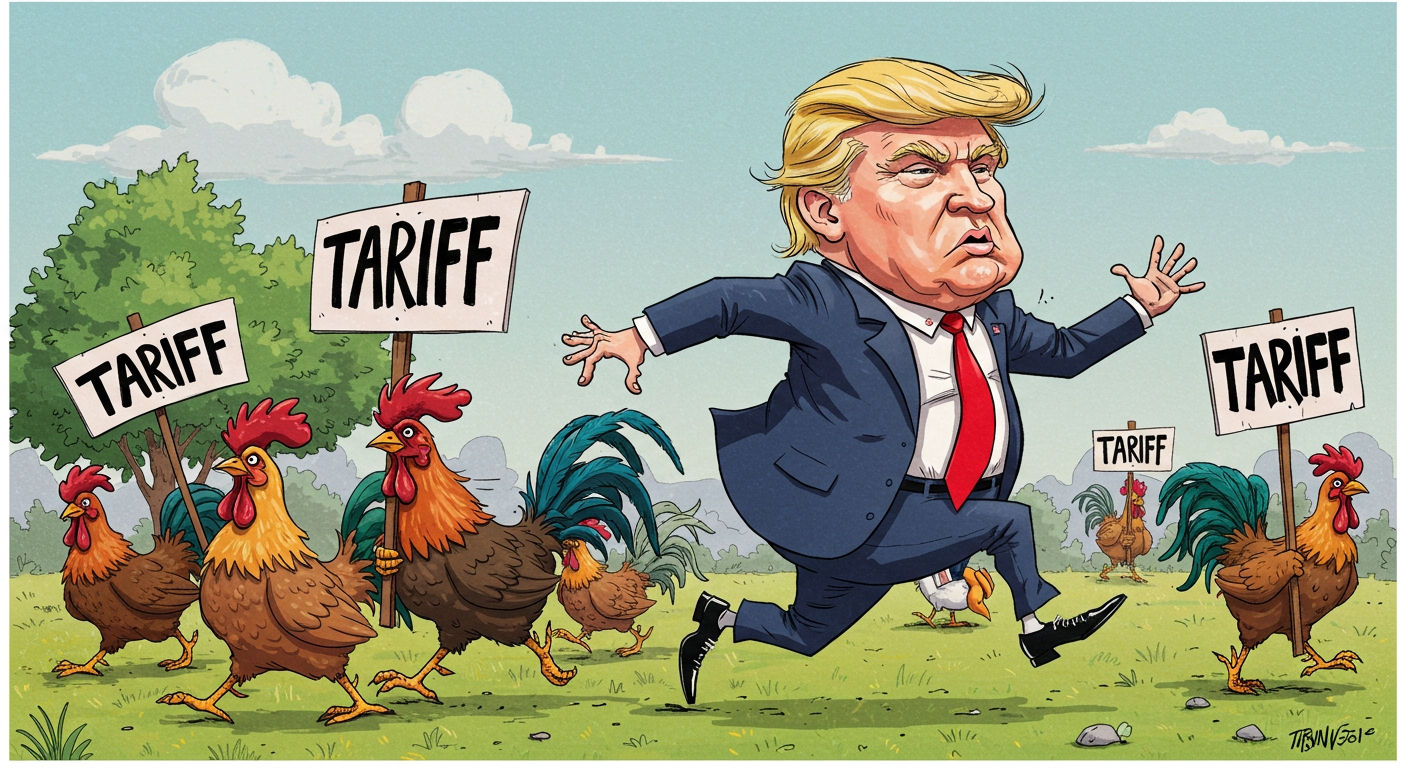
...
President Donald Trump's recent announcement of a 90-day pause on reciprocal tariffs for most countries, while significantly escalating tariffs on China, has ignited a fierce debate. Is this a strategic recalibration in the face of mounting economic pressure, or a tacit admission of the self-inflicted damage caused by his erratic trade policies?
The move, which sees tariffs on Chinese goods skyrocketing to 125% following Beijing's retaliatory measures, contrasts sharply with the temporary reprieve offered to other nations, who will see a reduced 10% tariff. This stark divergence has prompted questions about the administration's true motives, with critics accusing Trump of "chickening out" as the economic consequences of his trade war begin to bite.
Economic Backlash and Market Turmoil: The Driving Forces?
The decision to pause tariffs, except on China, appears to be heavily influenced by the growing economic backlash within the United States. Reports indicate significant market turmoil and increasing fears of a recession, prompting alarm bells within the Treasury Department.
"The U.S. faced significant economic backlash, including market turmoil and fears of a recession, prompting Trump to reconsider his broader tariff strategy," NDTV
These pressures seem to have forced a reassessment of the administration's aggressive trade stance.
Furthermore, the overwhelming response from over 75 countries, who engaged in negotiations without resorting to retaliatory measures, likely played a crucial role in Trump's decision to offer a temporary reprieve.
"Over 75 countries reached out to negotiate, which led to the pause," NDTV
This suggests a recognition of the need for diplomacy and a move away from unilateral action.
China as the Focal Point: Escalating Tensions
In contrast, China has become the primary target of Trump's trade policy, with tariffs escalating dramatically. This move reflects the administration's determination to address what it perceives as unfair trading practices by Beijing.
"The administration aimed to concentrate on what it perceives as unfair trading practices by China, maintaining pressure on Beijing," CNN
However, the potential consequences of this escalation are significant, with the risk of further retaliatory measures and a breakdown in U.S.-China trade relations.
Economic Consequences and Global Impact
The increased tariffs on China could lead to higher costs for American consumers and businesses, while also impacting China's export-driven economy.
"Higher tariffs could lead to increased costs for U.S. consumers and businesses, while China might experience reduced exports and economic growth," Al Jazeera
Moreover, the potential for a global economic slowdown or recession looms large, as the U.S.-China trade conflict reverberates across international markets.
Public Reaction: Skepticism and Market Relief
The stock market reacted positively to the tariff pause, indicating a sense of relief among investors. However, there is widespread skepticism about the long-term implications of Trump's policies. Critics argue that the temporary reprieve is merely a tactical maneuver to mitigate immediate economic damage, rather than a genuine shift in strategy. The question remains: is this a pragmatic adjustment, or a retreat disguised as diplomacy?
Is Trump's tariff pause a sign of economic pragmatism, or a political retreat? Will the escalating tensions with China lead to a full-blown trade war, or can a negotiated settlement be reached? How will these policies ultimately impact the average American consumer? Share your thoughts and insights in the comments below.

Add new comment